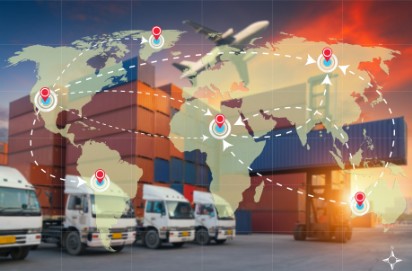Sustainability in e-commerce:
How local online stores are contributing to a greener future
Sunday 25 august 2024
In an increasingly digital world, e-commerce has become a major part of our lives. However, this digital revolution raises crucial questions about sustainability. Local online stores, in particular, stand out for their commitment to a greener and more responsible economy. This article explores how these companies are actively participating in a more sustainable future, focusing on five key aspects: local craftsmanship and responsible outsourcing, inventory management, returns management, improved customer experience, and participation in the Belgian social fabric.
Local production or responsible outsourcing: Towards ethical and social production
One of the pillars of sustainability in Belgian e-commerce is the choice in the range of products offered by retailers: whether local or artisanal production or responsible outsourcing. Many local online stores favor artisanal products, made by local craftsmen or family businesses. This not only supports the local economy, but also reduces the carbon footprint related to transportation.
When they opt for outsourcing, these companies do so responsibly, by selecting suppliers who adhere to strict ethical standards. According to several studies, companies that adopt ethical production practices see a significant improvement in productivity and employee satisfaction, which translates into better product quality and increased customer loyalty.
Better Order Tracking: Fewer Quantities, Less Inventory
Unlike e-commerce giants that focus on volume, local online stores take a more measured approach to inventory management. These companies favor on-demand or small-batch production models, which allows them to limit excess inventory and reduce waste, unlike e-commerce giants that openly destroy unsold or returned items.
This 'lean' model not only minimizes the risk of overproduction, but also reduces logistics costs and the carbon footprint associated with transportation and storage. A recent report reveals that companies with optimized inventory management can reduce their carbon footprint by 20 to 30%, while improving profitability.
Returns management: Reducing environmental impacts
Returns management is a major challenge for e-commerce, as it generates high costs and a significant environmental impact. Local online stores seek to minimize this problem by optimizing product descriptions and offering personalized advice before purchase. This helps reduce the return rate, and therefore, additional transport and product waste.
According to a recent study, returns represent nearly 4 billion packages per year in Europe, with a considerable carbon footprint. Initiatives to reduce these returns are therefore essential for a more sustainable approach to e-commerce.
Better customer experience: Fewer disappointments, more satisfaction
Local online stores make a point of offering a superior customer experience, focusing on quality of service and personalization. Unlike large platforms where anonymity is often the rule, these local businesses create a more direct and personal connection with their customers, by offering tailor-made advice and ensuring rigorous post-purchase follow-up.
This approach helps reduce disappointments related to online purchases and reduces return rates. A study shows that companies that invest in a better customer experience see a 5-10% increase in customer satisfaction, which translates into higher loyalty and lower returns.
Belgian businesses and the social fabric: Contributing to a resilient local economy
Finally, Belgian local online shops play a crucial role in supporting the country's social and economic fabric. By prioritizing local partnerships and supporting community initiatives, these companies contribute to the resilience of the Belgian economy, especially in times of crisis.
According to several studies, Belgian SMEs active in e-commerce that collaborate with local suppliers not only create jobs, but also strengthen social ties within communities. This approach contributes to sustainable economic development, by supporting both the local economy and reducing the environmental impact.
Local online stores are leading the way towards more sustainable e-commerce. By choosing ethical and responsible practices, optimizing inventory and returns management, and offering a superior customer experience, they demonstrate that it is possible to reconcile e-commerce and respect for the environment. Belgian companies, in particular, play a crucial role in promoting a resilient and sustainable local economy, proving that the future of e-commerce can be both prosperous and green.
Return









